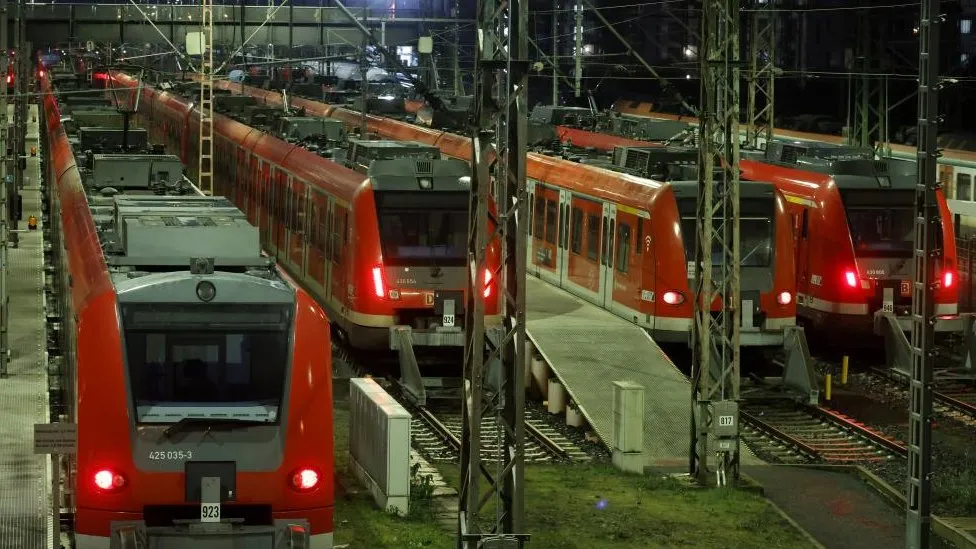Train drivers all over Germany have started a strike. It will go on for six days, which is the longest strike they have ever had.
The GDL rail drivers’ union went on strike, which affected passenger trains starting at 02:00 on Wednesday. Goods-train drivers also took part in the strike.
Many Germans were involved in the situation when the union made a long-standing disagreement with state-owned Deutsche Bahn worse.
The most recent attack is the fourth time they have taken action since November.
The union wants to get paid more because the cost of things is going up. They also want to work fewer hours each week without getting less money.
Deutsche Bahn (DB) has changed their train schedule because of the strike. They will go back to the normal schedule at 6:00 PM on Monday.
Germany’s trains are not running, and it’s never happened before. Passenger trains have been stopped for 136 hours. Train services will be affected by the strike on a weekend for the first time.
There were really bad traffic jams in cities like Hamburg because of a farmers’ protest with 100 tractors. Drivers were getting ready to deal with it.
Local and suburban train services were significantly impacted, and 80% of long-distance trains were cancelled.
The company that runs the trains and government leaders are unhappy about the long strikes because they are causing problems for the German economy and people who need to travel.
Tanja Gönner, who is in charge of a group of German businesses, said that a six-day strike could cost the economy up to €1bn. Germany is an important place for moving goods around Europe.
Transport Minister Volker Wissing asked the union to try to work things out with the help of a mediator. He said that right now, it’s unlikely that a solution will be found.
“Passengers are really worried right now, and no one is talking about a solution,” he told Deutschlandfunk radio.
“If people can’t talk to each other, we really need someone to help them figure things out. ”
A survey by YouGov asked over 4,000 adults in Germany about a strike. They found that only 34% understood why the strike was happening, while 59% said they didn’t understand it at all.
Discussions between the union and DB have been going on since November, but the company said no to the request for a three-hour shorter work week. Instead, they suggested an optional plan where employees could work one hour less without a pay cut or choose to get a 2. 7% pay raise
The GDL said no to the offer.
Date:

